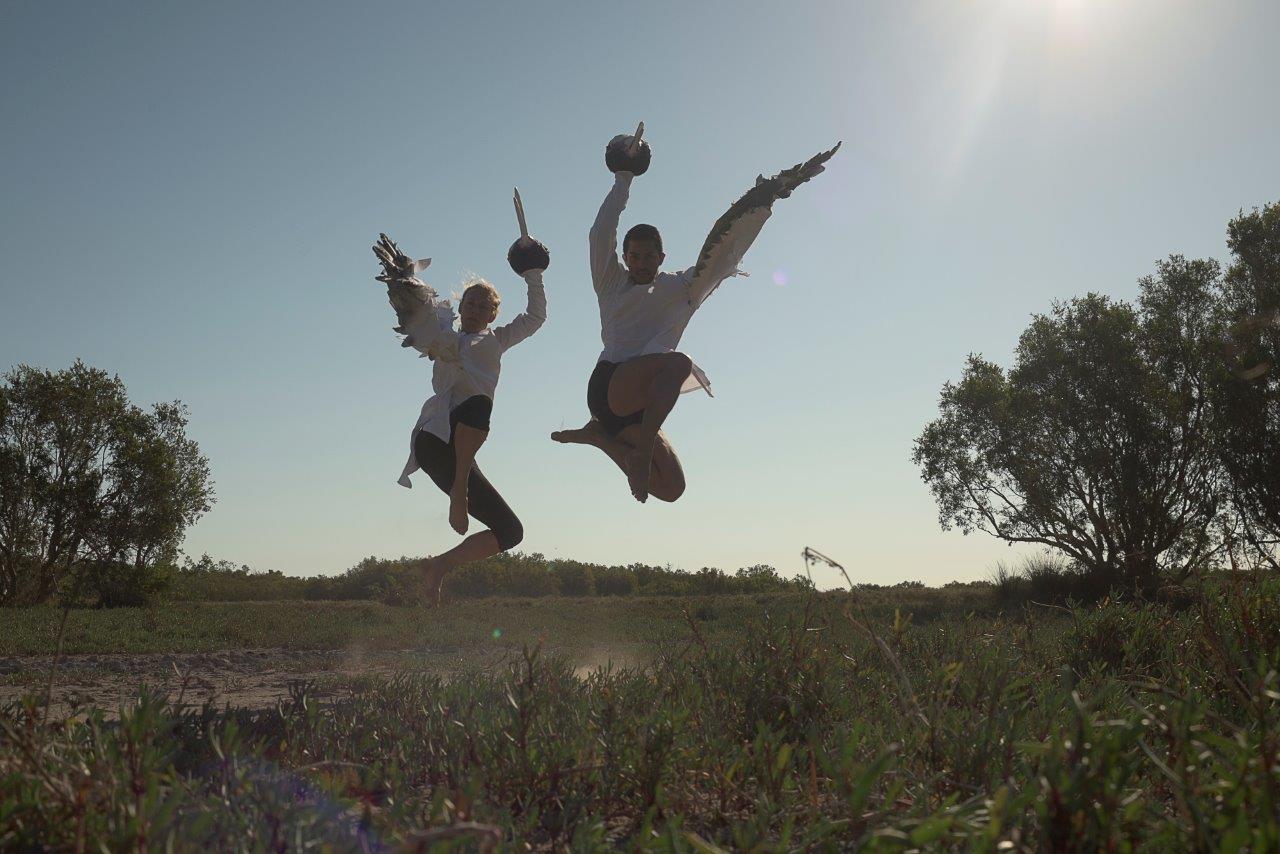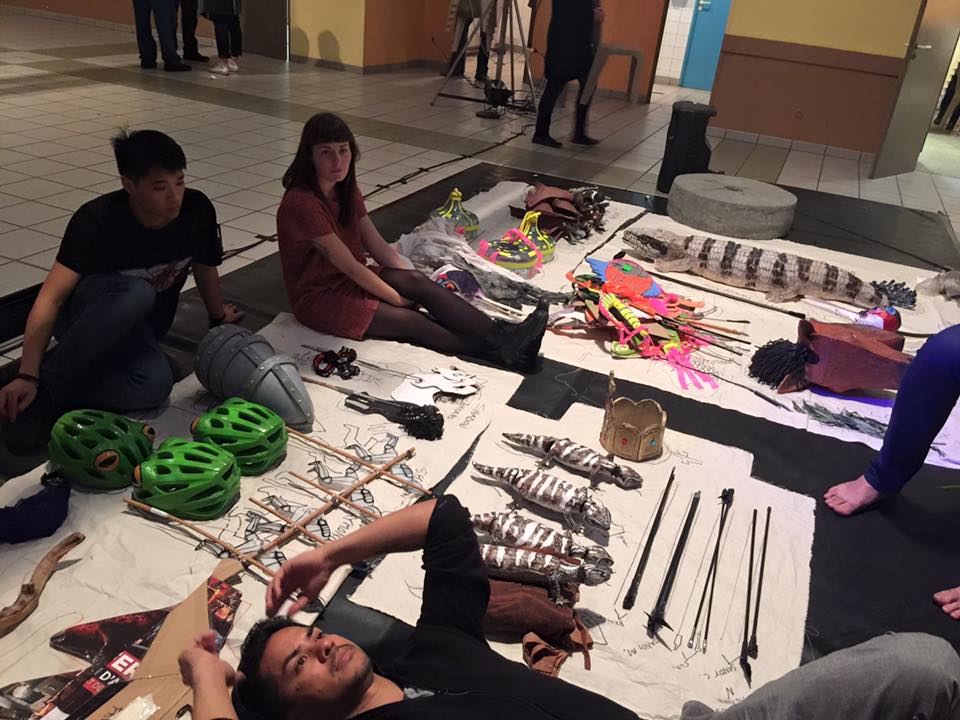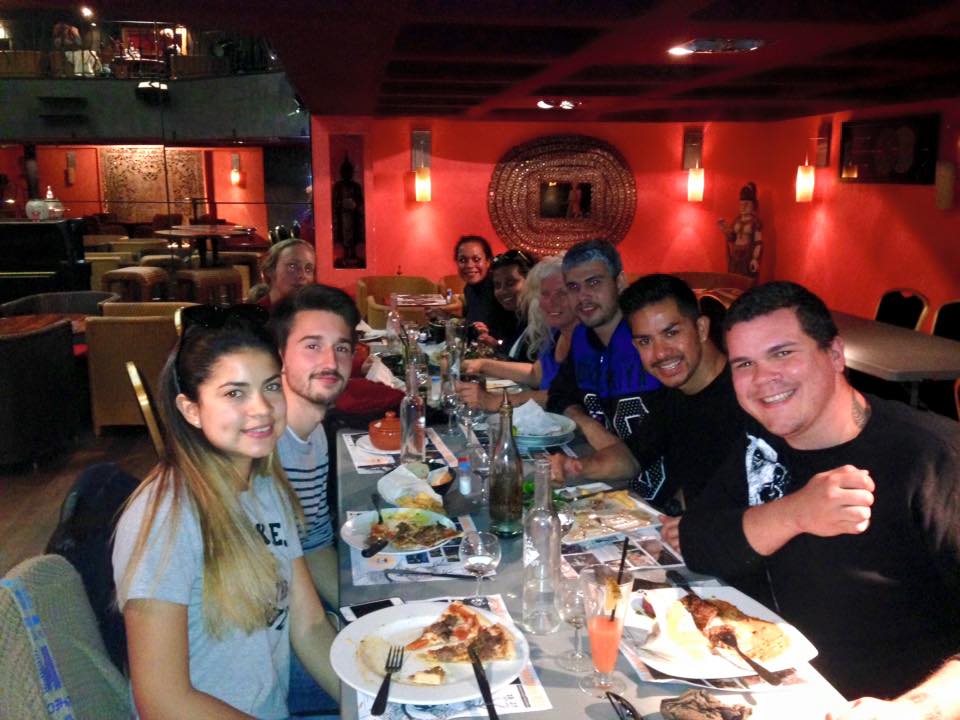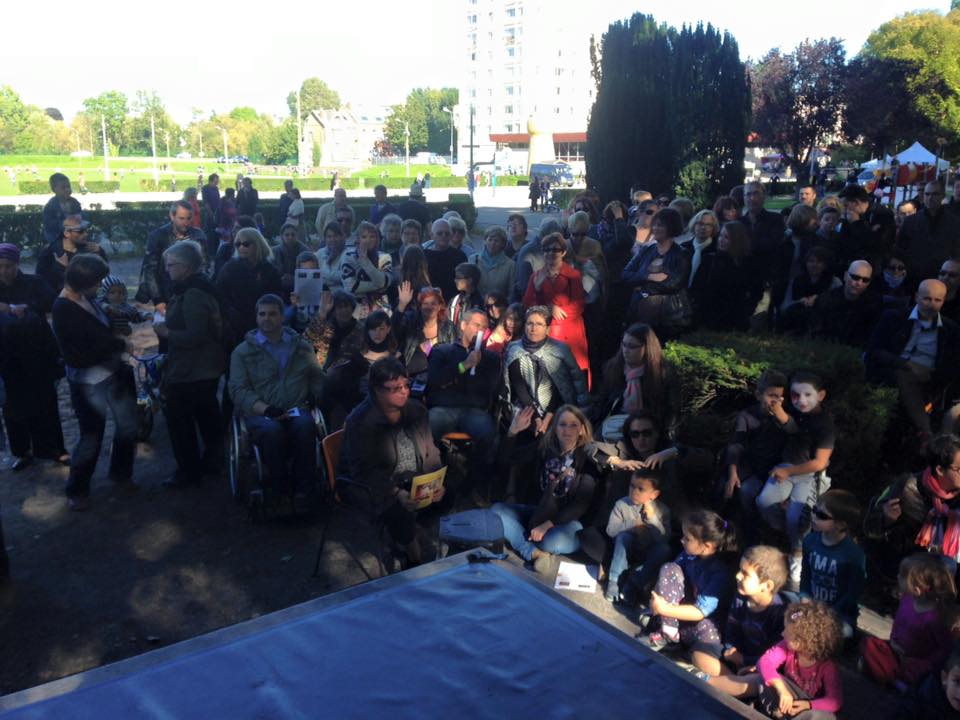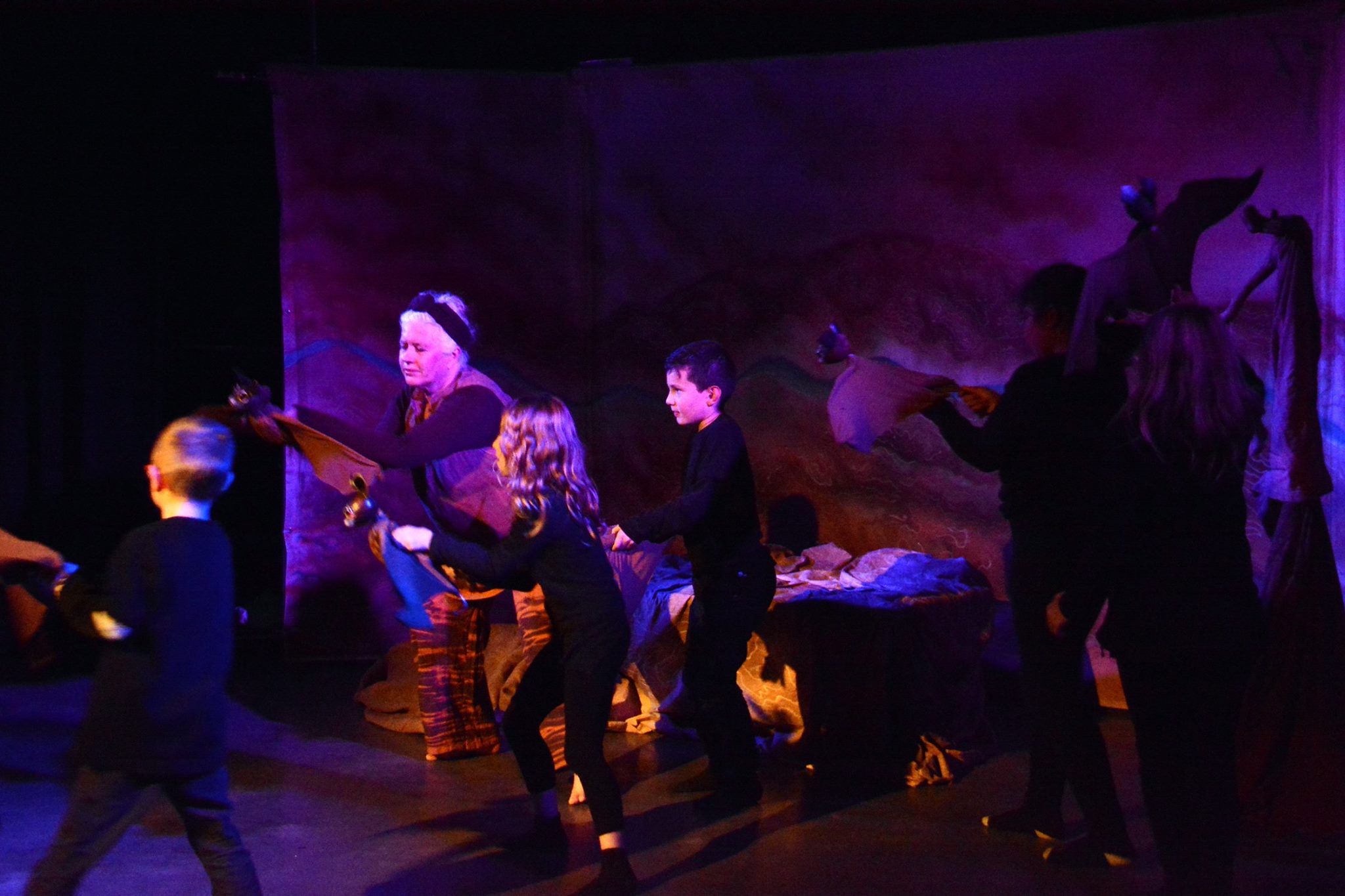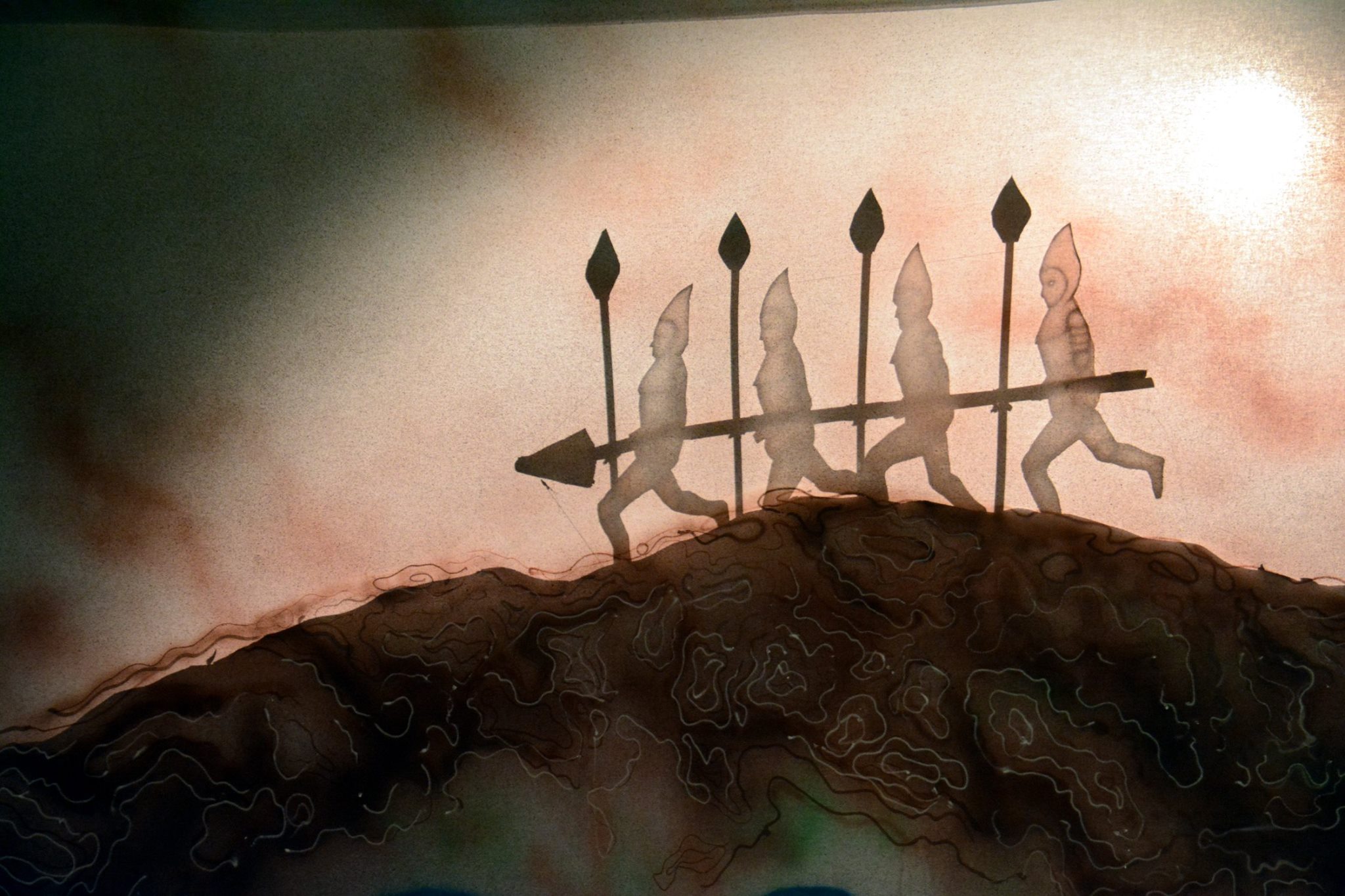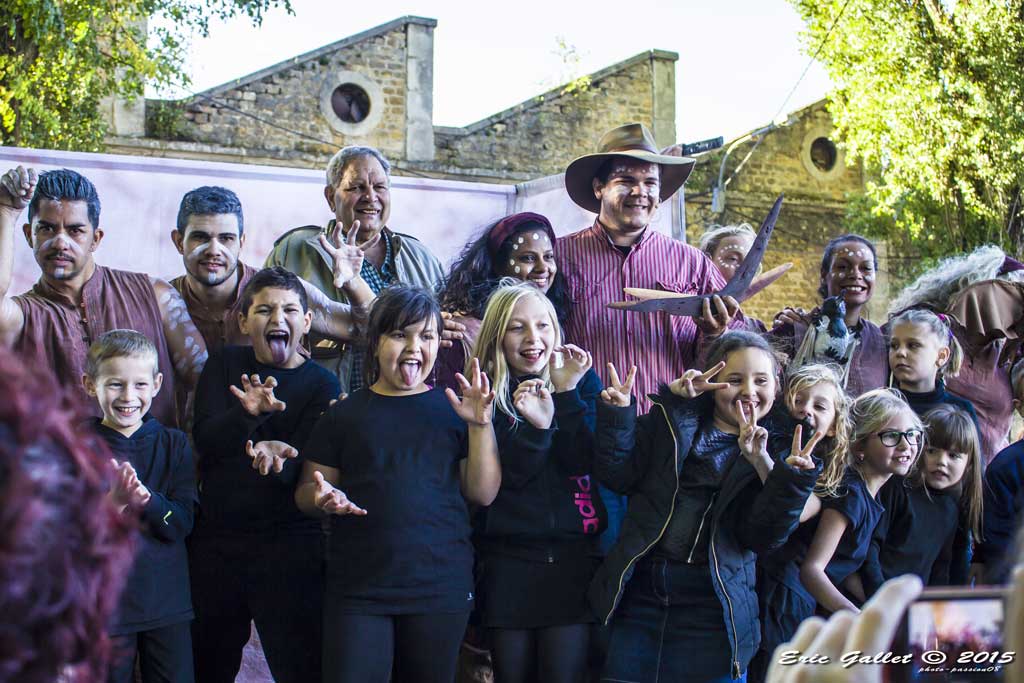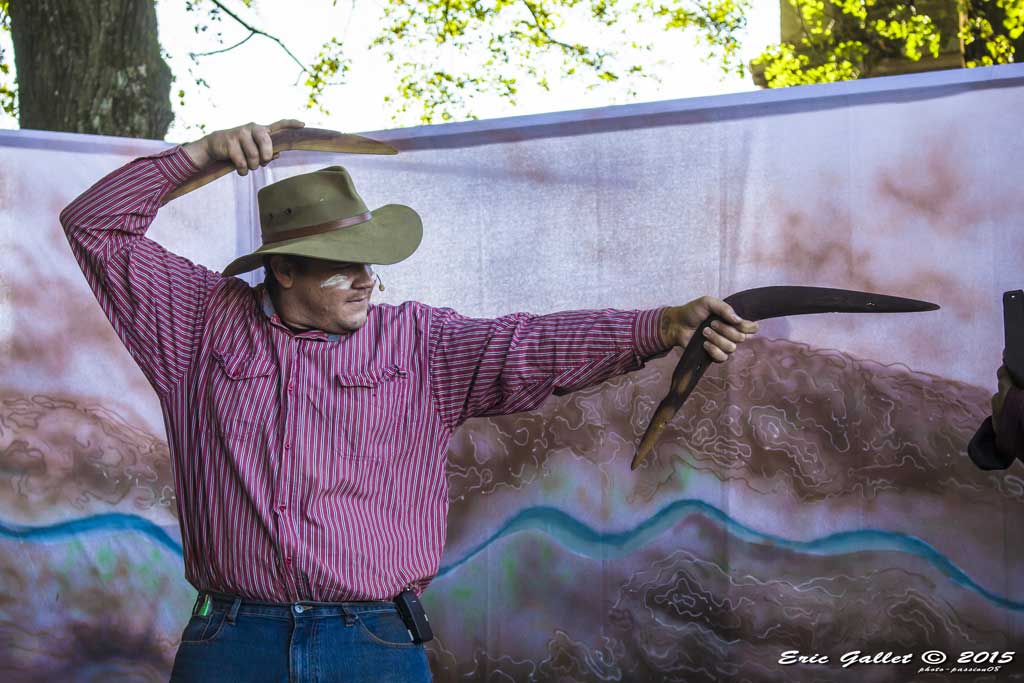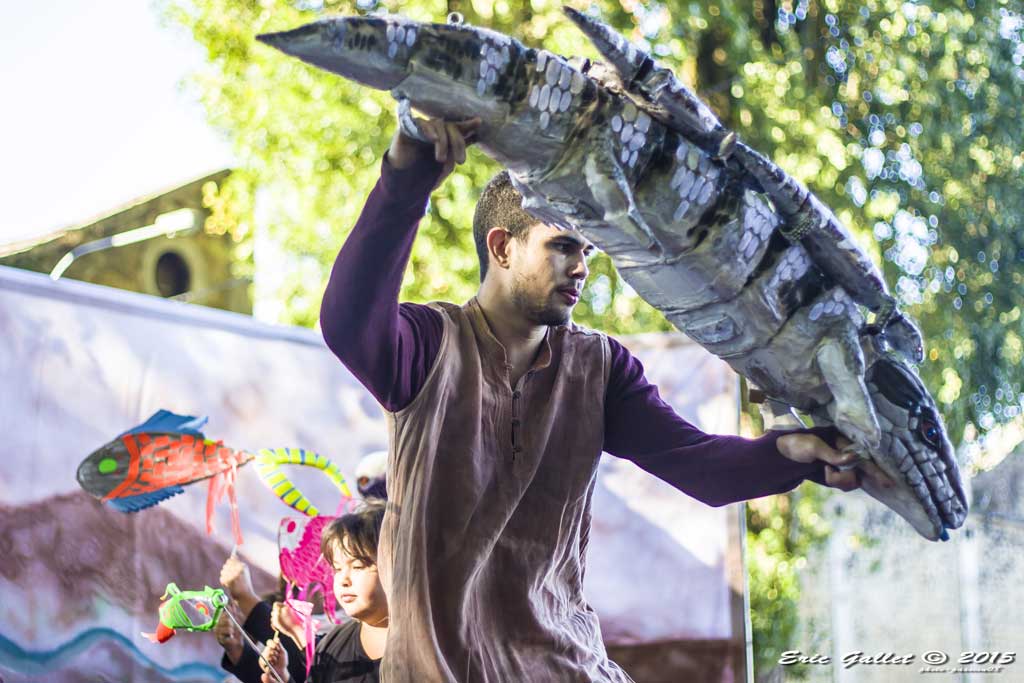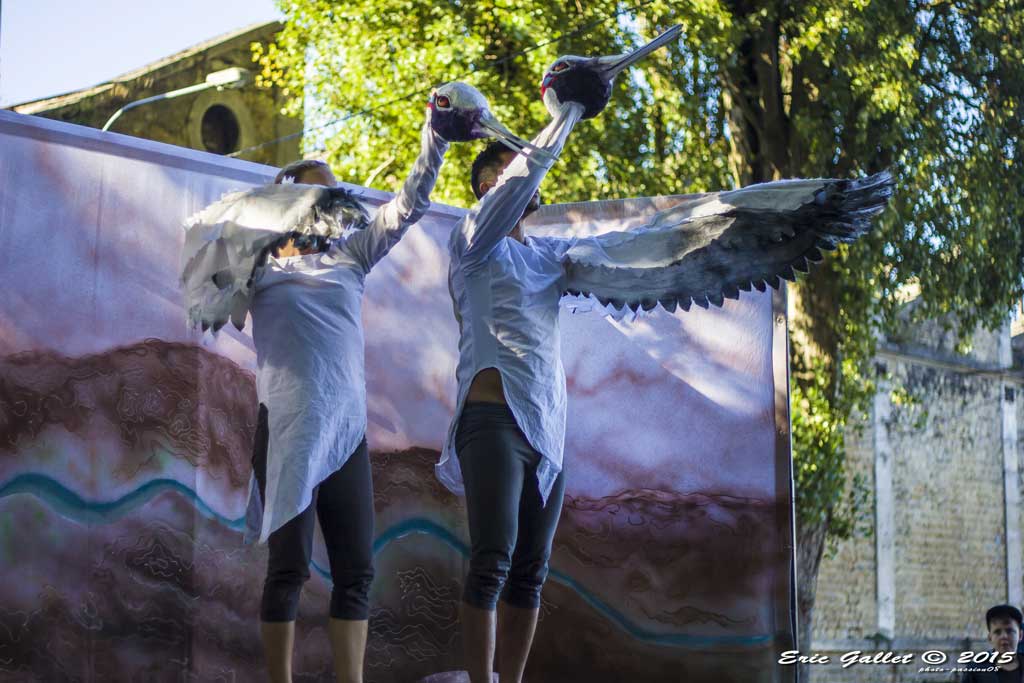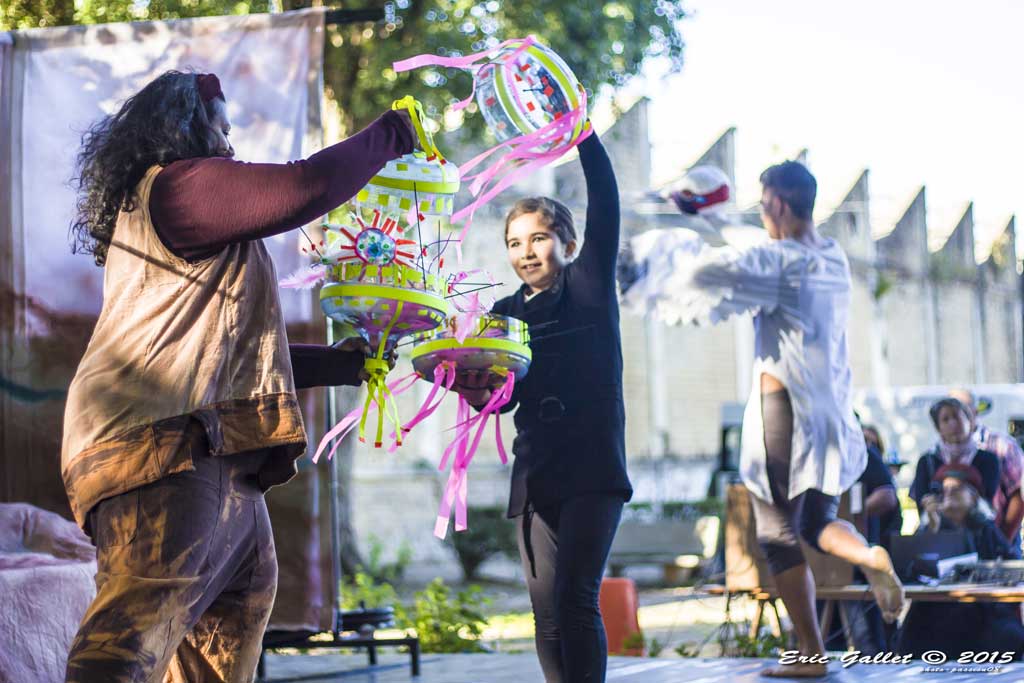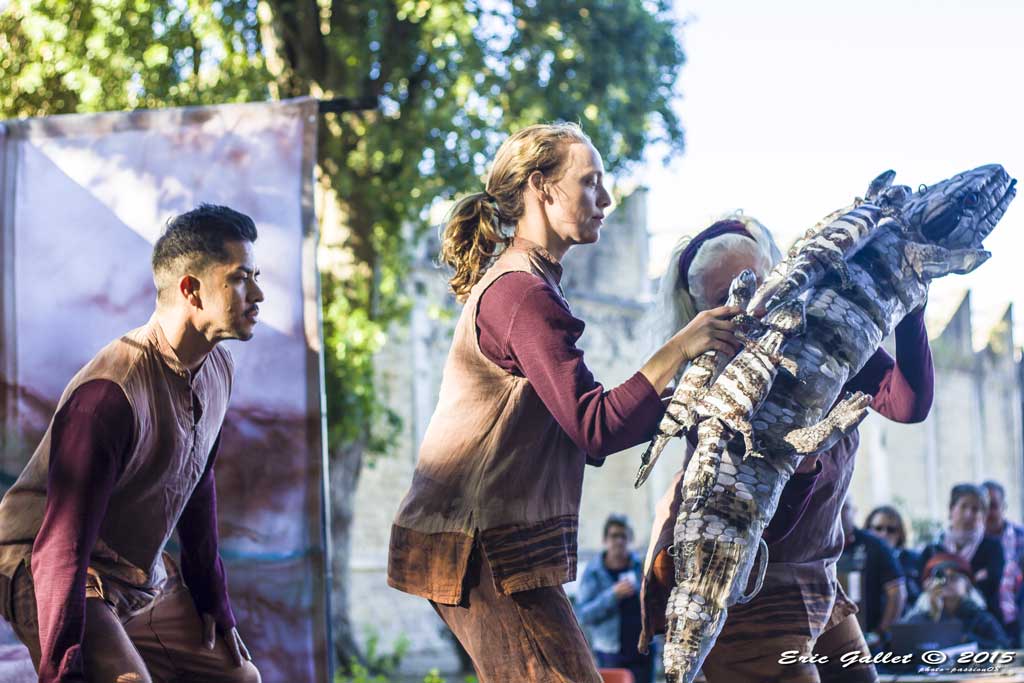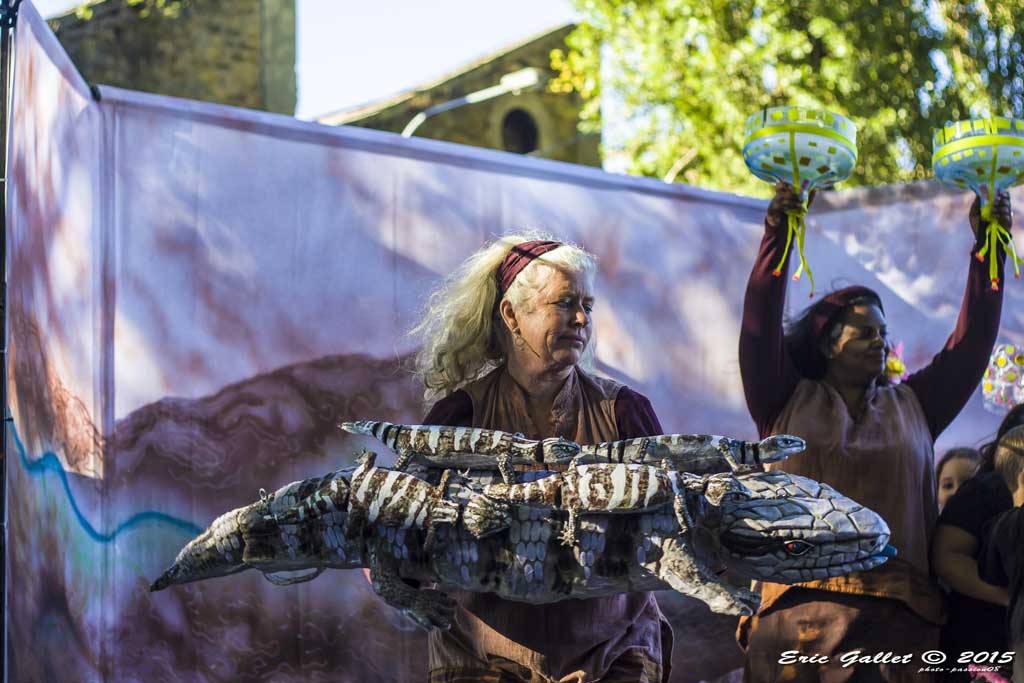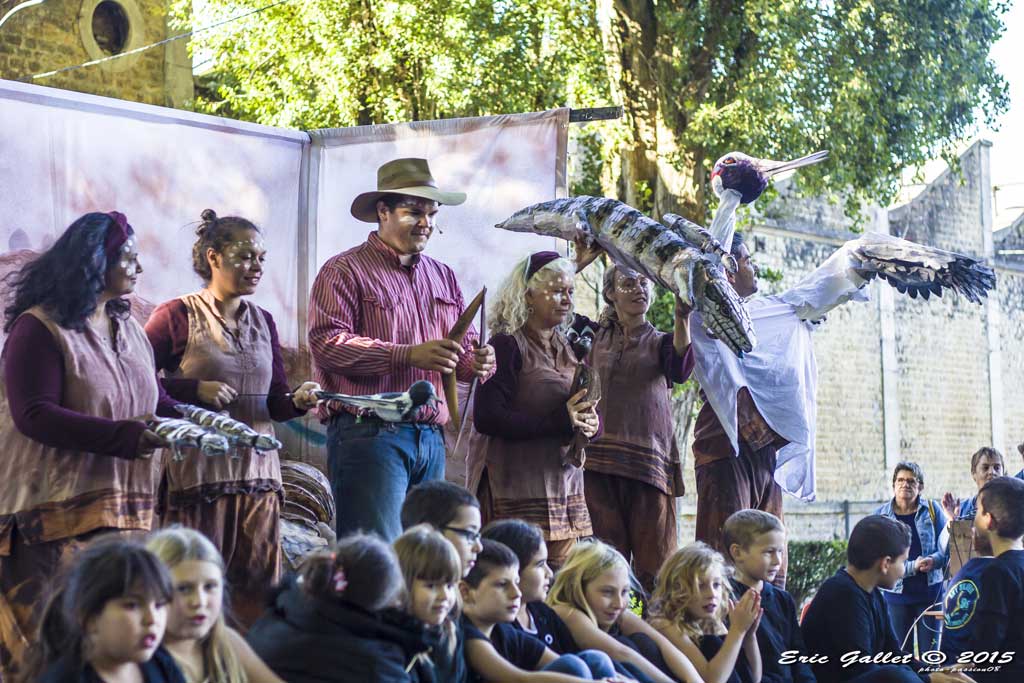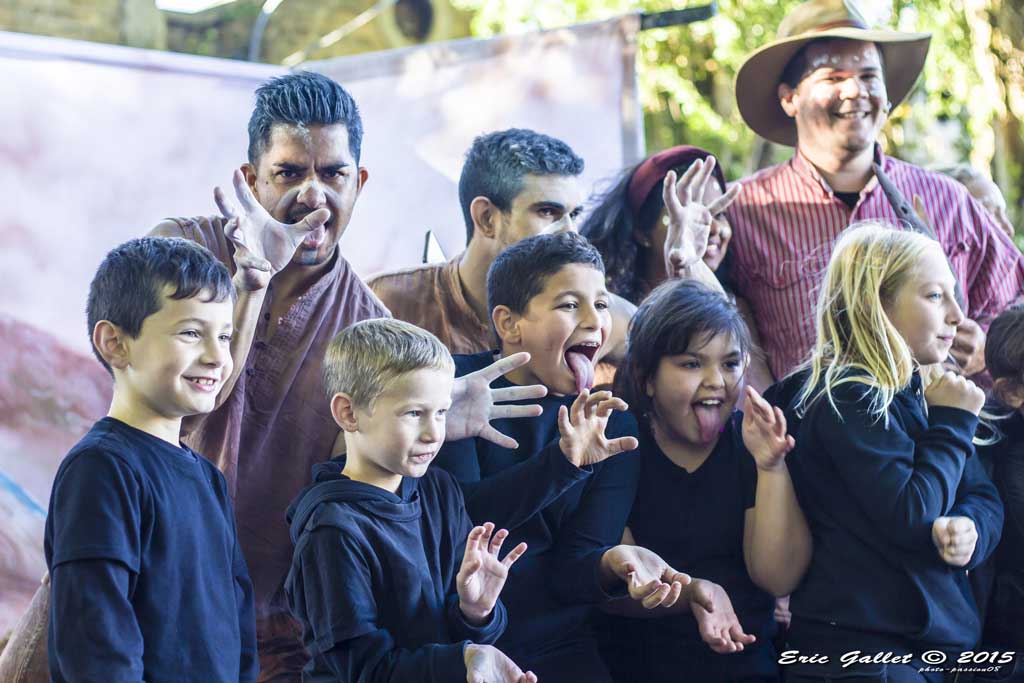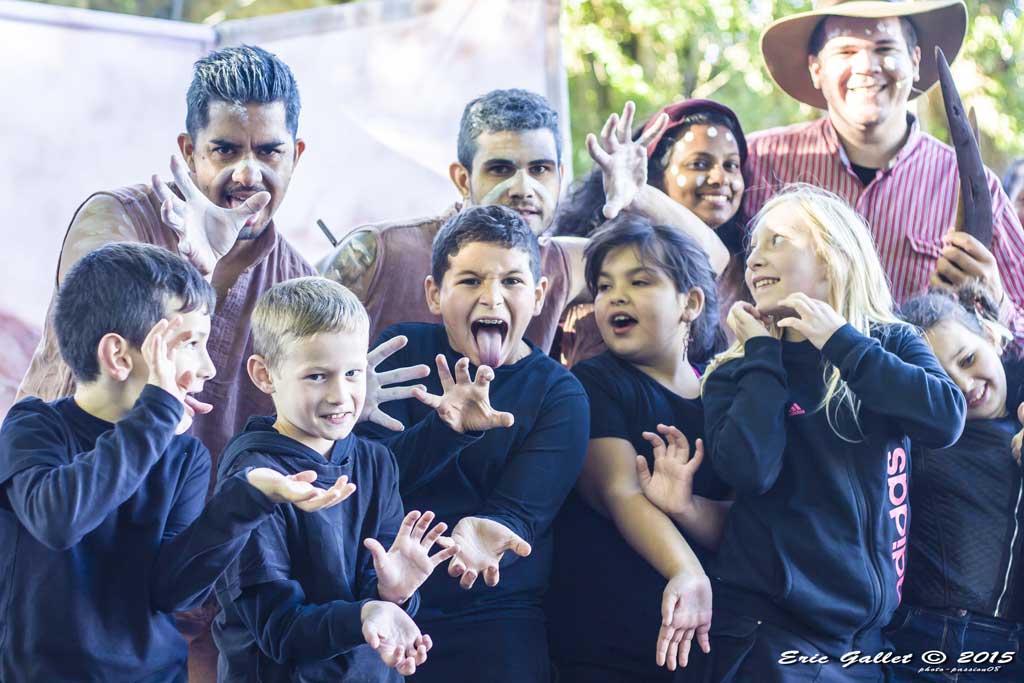Text from the above poster:
"...Executive producers Madjulla Inc. and Big Mama Productions Present - The Ngalyak and the Flood - A Franco-Australian Creation - With the participation of the Bronnert and St Julian Schools (France), and Kimberley schools (Australia)."
France – Australia: Coming Together
From the Mardoowarra to the Meuse…
In 2014 we started to work on a joint project between the towns of Broome in Western Australia, and Charleville-Mézières in France, to foster a relationship between the two towns.
Dr. Anne Poelina and Ian Perdrisat had met with Gilbert-Philippe Vaillant (writer and story-teller), Philippe–Kimberley Vaillant (townplanner-geographer), Jean-Pierre Lemant and David Nicolas (archaeologists) on their first trip to Charleville-Mézières in 2014.
The objective of this meeting was to explore the similarities between two stories set around two rivers. One river in France - the Meuse River, which runs through Charleville-Mézières, and the Fitzroy River, or Mardoowarra for Nyikina people, in Australia, which runs near the remote Nyikina and Walmajarri Aboriginal community of Looma in the West Kimberley region of Western Australia. The Looma community was named after “Looma”, in Nyikina language, which is the name of the blue-tongue lizard featured in the story.
The creation story from Australia is from the Nyikina Aboriginal people. It relates the story of the Ngalyak mother (blue-tongue lizard), who dies while trying to save her children from the flood. They wait for her to return and become part of the landscape. The other story from France/Belgium is of the Bayard horse, who saved four young men, and who also became part of the landscape.
The friendship between the countries was sealed at this meeting by the sharing of water from each river.
Gwendolyn (Gwen) Knox, of Big Mama Productions, was approached by Dr. Anne Poelina (from the Nyikina Community) and Phillipe Vaillant from Charleville-Mézières, to put together a puppet performance telling the story of the Ngaliak mother and her children.
This was done in preparation for the Festival Mondial des Théâtres de Marionnettes in 2015 to foster the developing friendship between Charleville-Mézières and the West Kimberley region of Western Australia.
Our participation in the 2015 festival is all the more poignant as 2014 marked the beginning of the 100-year commemoration of the First World War, and in particular Australia’s involvement on the “Western Front” in the Ardennes from 4th August 1914.
Synopsis
The Green tree frogs call in the rain. They perform acrobatics talking about unions and families. This worries the green ants a lot, who start to run around to prepare for the impending flood. The Brolgas hear the frogs and start their courtship dance. The flying foxes who are hanging in their trees complain about the noise and each other. The mother blue tongue lizard wakes up and gives birth to her babies, and takes them on a journey to escape the impending flood. She struggles to find a high hill to put her babies to safety.
The flying foxes take flight at sunset and confuse her. The frogs are very happy that the flood is coming and splash about in the rising water filled with diatoms. The mother manages to place her babies on a high hill but she is washed away to become a sand dune. The babies wait and wait for their mother to return. They wait so long that they turn into stone.
The frogs, ants, Brolgas and diatoms continue their annual cycle of courtship and flooding as long as it doesn’t get interrupted by major climatic changes and environmental degradation.
For more details about this important production please direct all correspondence and inquiries to Dr. Anne Poelina and Ian Perdrisat at:
Postal
Madjulla Inc
PO Box 2747
Broome WA 6725
Telephone
+61 (0)408 922 155
majala@wn.com.au
Photos From The Trip
Press / Media Coverage
The Ngalyak tour has appeared in the following online locations:
https://roundtown.com/event/18863690/Le-Ngalyak-et-le-d%C3%A9luge-Charleville-M%C3%A9zi%C3%A8res-FR
http://nathdit.fr/2015/09/marionnettes-et-legende-aborigene-au-centre-dhotel-vendredi-soir/
http://www.festival-marionnette.com/images/guide-festivalier-web.pdf
Post Event - Gallery 1
Post Event - Gallery 2
Post Event - Gallery 3








